Filter by
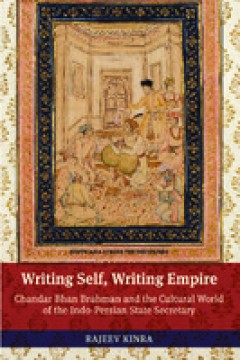
Writing self, writing empire : Chandar Bhan Brahman and the cultural world of…
"Writing Self, Writing Empire examines the life, career, and writings of the Mughal state secretary, or munshi, Chandar Bhan Brahman (d. ca. 1670), one of the great Indo-Persian poets and prose stylists of early modern South Asia. Chandar Bhan’s life spanned the reigns of four emperors: Akbar (1556–1605), Jahangir (1605–1627), Shah Jahan (1628–1658), and Aurangzeb ‘Alamgir (1658–170…
- Edition
- -
- ISBN/ISSN
- 9780520961685
- Collation
- XIX, 371 p.
- Series Title
- South Asia Across the Disciplines,
- Call Number
- 891.5512 KIN w
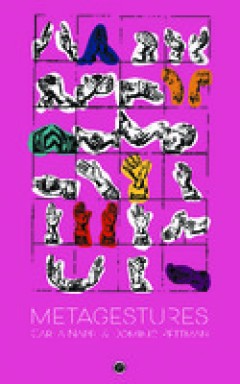
Metagestures
"What kinds of knowledge and understandings of the world can be generated – and shared – when we use para-academic techniques and sensibilities to decode or respond to relatively orthodox intellectual objects? And what worlds might be possible if we practiced scholarly work from a place of collaboration and pleasure, as joyful fellow explorers? In Metagestures, presented in a playful tête-…
- Edition
- 1st edition.
- ISBN/ISSN
- 9781950192267
- Collation
- x, 221p.:
- Series Title
- -
- Call Number
- 813.6 NAP m
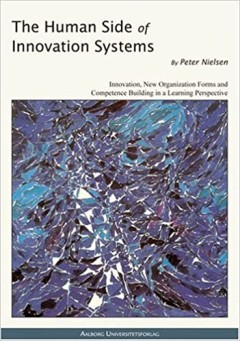
The human side of innovation systems: innovation, new organization forms and …
The aim of this book is to analyze the relationship between innovation, English employment and competence development within the framework of new learning organization forms. Knowledge production and innovation are often seen as linear processes, assuming that scientific results are followed by technological invention, production and market introduction. An alternative approach, which is chosen…
- Edition
- -
- ISBN/ISSN
- 8773077704
- Collation
- 191p.: ill.
- Series Title
- -
- Call Number
- 331.11423 NIE h
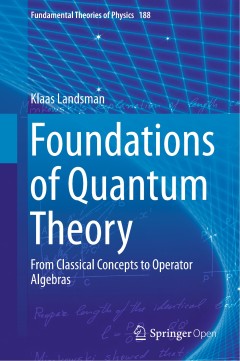
Foundations of quantum theory : from classical concepts to operator algebras
This book studies the foundations of quantum theory through its relationship to classical physics. This idea goes back to the Copenhagen Interpretation (in the original version due to Bohr and Heisenberg), which the author relates to the mathematical formalism of operator algebras originally created by von Neumann. The book therefore includes comprehensive appendices on functional analysis and …
- Edition
- -
- ISBN/ISSN
- 9783319517773
- Collation
- xv, 881p. : ill.
- Series Title
- -
- Call Number
- 530.12 LAN f
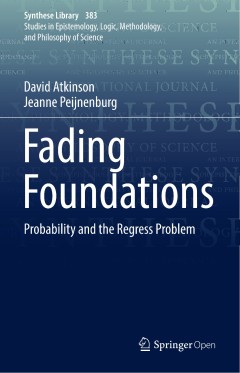
Fading foundations : probability and the regress problem
This book addresses the age-old problem of infinite regresses in epistemology. How can we ever come to know something if knowing requires having good reasons, and reasons can only be good if they are backed by good reasons in turn? The problem has puzzled philosophers ever since antiquity, giving rise to what is often called Agrippa's Trilemma. The current volume approaches the old problem in a…
- Edition
- -
- ISBN/ISSN
- 9783319582955
- Collation
- xi, 238p. : ill.
- Series Title
- -
- Call Number
- 121 ATK f
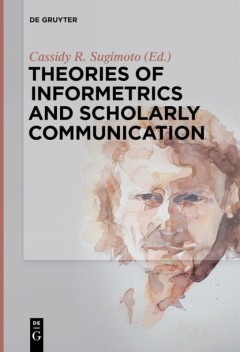
Theories of informetrics and scholarly communication
Scientometrics have become an essential element in the practice and evaluation of science and research, including both the evaluation of individuals and national assessment exercises. Yet, researchers and practitioners in this field have lacked clear theories to guide their work. As early as 1981, then doctoral student Blaise Cronin published The need for a theory of citing —a call to arms fo…
- Edition
- -
- ISBN/ISSN
- 9783110308464
- Collation
- 426 p.; 22 cm.
- Series Title
- -
- Call Number
- 020.727 THE t
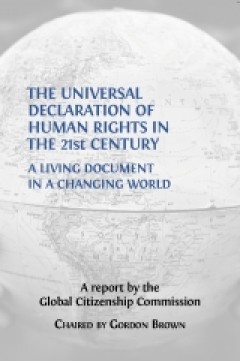
The Universal declaration of human rights in the 21st century
The Global Citizenship Commission was convened, under the leadership of former British Prime Minister Gordon Brown and the auspices of NYU’s Global Institute for Advanced Study, to re-examine the spirit and stirring words of The Universal Declaration of Human Rights. The result – this volume – offers a 21st-century commentary on the original document, furthering the work of human rights a…
- Edition
- -
- ISBN/ISSN
- 9781783742219
- Collation
- x, 136 p.;22 cm.
- Series Title
- Open Reports Series; Vol. 2
- Call Number
- 323 UNI u
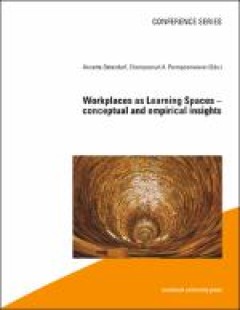
Workplaces as learning spaces--conceptual and empirical insights
This volume is focused on workplaces as learning spaces. It is the fourth volume of Asian and European researchers carrying out common or related work in the field of workplace learning. They are organised in the ASEM Lifelong Learning research net-work, which was established in 2005 and includes members from 14 countries in Asia and Europe. The research network is enhancing a vivid exchange of…
- Edition
- -
- ISBN/ISSN
- 9783903122734
- Collation
- 195 p.
- Series Title
- Conference series,
- Call Number
- 371.1 WOR w
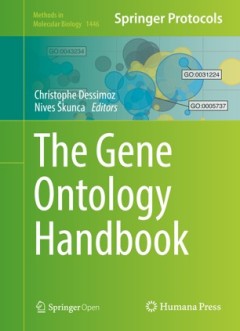
The gene ontology handbook
This book provides a practical and self-contained overview of the Gene Ontology (GO), the leading project to organize biological knowledge on genes and their products across genomic resources. Written for biologists and bioinformaticians, it covers the state-of-the-art of how GO annotations are made, how they are evaluated, and what sort of analyses can and cannot be done with the GO. In the sp…
- Edition
- -
- ISBN/ISSN
- 9781493937431
- Collation
- xii, 305p. : ill.
- Series Title
- -
- Call Number
- 572.80285 GEN g
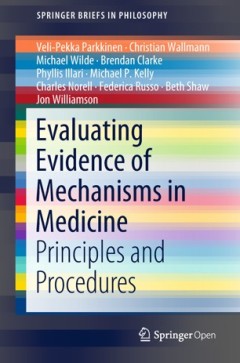
Evaluating evidence of mechanisms in medicine : principles and procedures
This book is the first to develop explicit methods for evaluating evidence of mechanisms in the field of medicine. It explains why it can be important to make this evidence explicit, and describes how to take such evidence into account in the evidence appraisal process. In addition, it develops procedures for seeking evidence of mechanisms, for evaluating evidence of mechanisms, and for combini…
- Edition
- -
- ISBN/ISSN
- 9783319946108
- Collation
- xviii, 125p. : ill.
- Series Title
- -
- Call Number
- 610.1 EVA e
 Computer Science, Information & General Works
Computer Science, Information & General Works  Philosophy & Psychology
Philosophy & Psychology  Religion
Religion  Social Sciences
Social Sciences  Language
Language  Pure Science
Pure Science  Applied Sciences
Applied Sciences  Art & Recreation
Art & Recreation  Literature
Literature  History & Geography
History & Geography